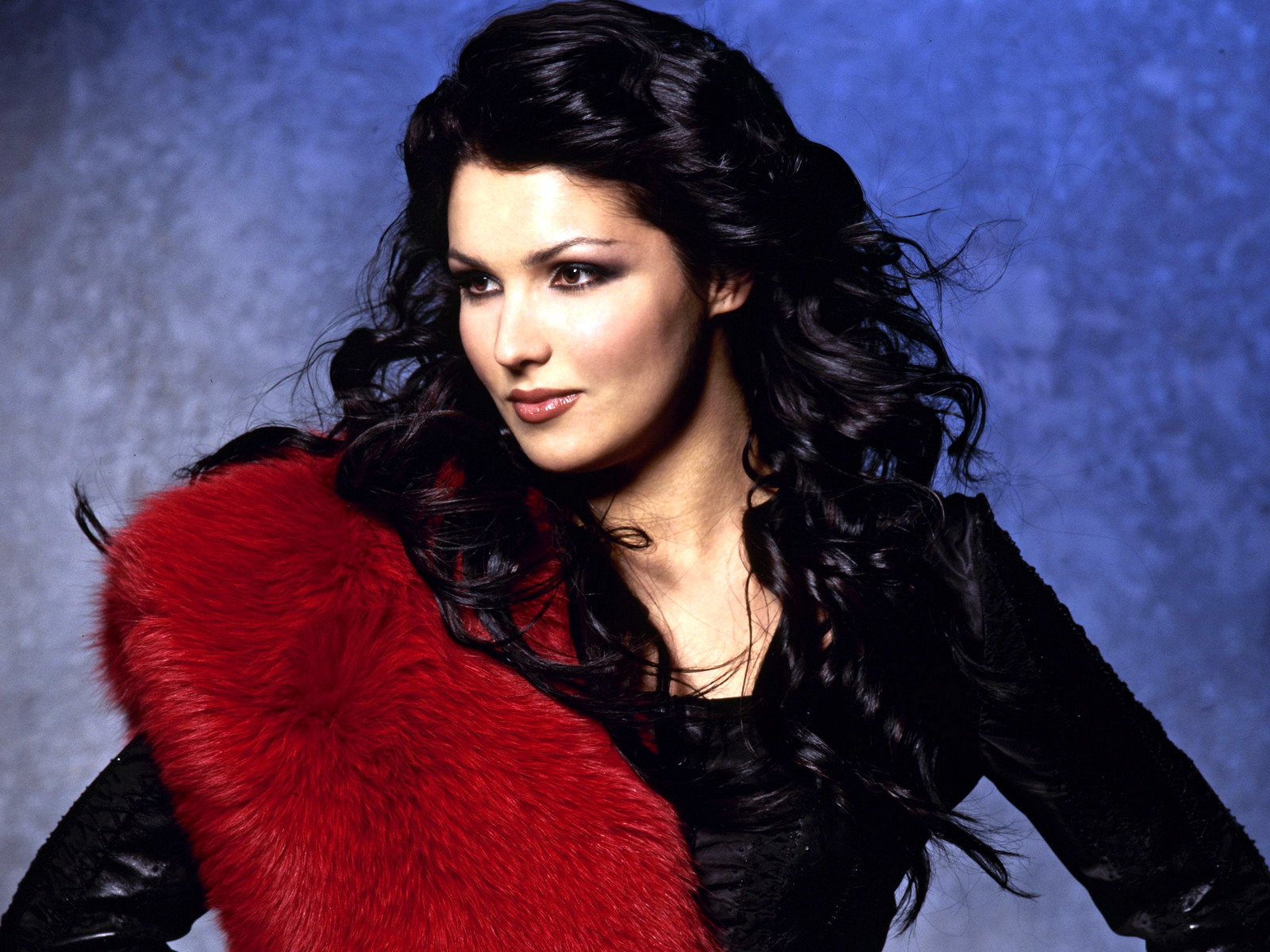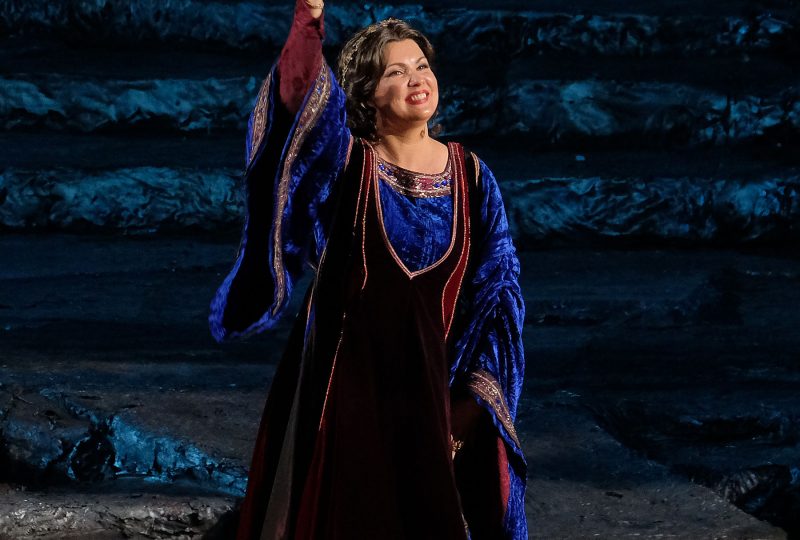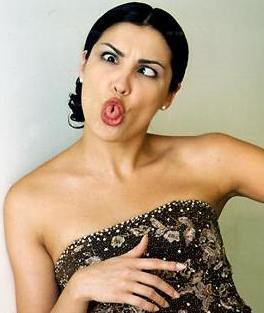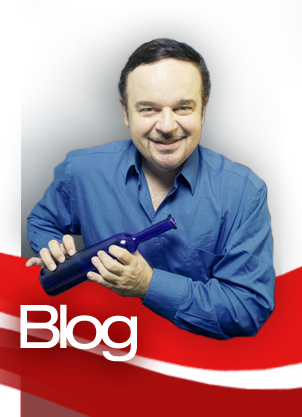| ANNA, la SUPER DIVA |
| Sabato 24 Ottobre 2020 12:53 |
|
Mi punge vaghezza di parlarvi adesso della voce femminile più importante dei tempi attuali, Anna Netrebko , e di analizzarne le plurime virtù. Quando la ascoltai la prima volta dal vivo, come Susanna nelle Nozze di Figaro e subito dopo in Gilda nel Rigoletto , Bohème e in Lucia, feci un salto sulla poltrona: pur venata appena di quella brunitura che oggi le consente di essere più che credibile in un repertorio assai più drammatico, la voce risultava subito una GRANDE voce, ricca di armonici e doviziosa nel timbro. Bella lei, con o senza chili in più, bellissima la sua qualità naturale, la sua stoffa. Una volta Carreras (un altro timbro benedetto da Dio) mi disse un concetto illuminante: “Io fraseggio con il colore della mia voce.” Cosa voleva dire? Una Santa Verità: quando hai un timbro speciale, unico, di superiore caratura non hai bisogno di impazzire con sofisticherie esecutive, alchimie tecniche, sopracuti e piroette vocali…SEI già, ti puoi tranquillamente appoggiare alla bellezza del proprio strumento. Ma Anna Netrebko mostrava una marcia in più: sapeva stare in palcoscenico come nessuna, mossa da un istinto e una teatralità naturali impressionanti, che si riassumevano perfettamente nei 5 minuti dell’aria “Meine Lippen” di Léhar, dove oltre a cantare con una nonchalance e una facoltà addirittura strafottente , riusciva a prodursi in un balletto scatenato, direi proprio “cosacco” , mandando il pubblico in visibilio. Questo si chiama TALENTO (quello che secondo Wilde “non si perdona”).
Le biografie ricordano i suoi avventurosi inizi : “il soprano Anna Netrebko inizia a lavorare pulendo i pavimenti dell’ Opera Kirov di San Pietroburgo per pagarsi gli studi di canto.La sua carriera inizia quando viene notata dal direttore Valery Gergev ,che diviene il suo mentore.” (Wikipedia) Da ragazza è magra e più simile a una modella che a una cantante lirica, perfetta per la prima importante copertina del recital Deutsche Grammophon, diretta addirittura da Abbado. La voce dei primissimi tempi è filiforme, carina ma non ancora sostenuta a dovere dal fiato eppure Gergev prima e le multinazionali poi capiscono che dietro a quella leggiadra fanciulla si cela una vera futura Diva. I ruoli che la consacrano sono quelli dove può mettere in risalto una recitazione esplicita, diretta, persino sfrontata :Manon di Massenet (resta agli atti l’immagine osé di lei a gambe larghe libidinosamente osservata da Rolando Villazon), Juliette nell’opera di Gounod, Violetta Valery nella celeberrima Traviata di Salisburgo nel 2005 che segna un trionfo assoluto. La Netrebko in chiave lirica aggiunge Mimì in Bohème come personaggio chiave mentre soffre sui sopracuti dei ruoli più belcantistici, non avendo il mi bemolle tra le frecce al suo arco. Già nella succitata Susanna (che pur recitò come nessuna prima di lei) avevo notato che la voce veniva artatamente sbiancata, forse alla ricerca di quell’altezza necessaria per svettare oltre ma Susanna è una parte bassa, una tessitura che a tratti è quella di un mezzosoprano. La vera svolta vocale avviene dopo l’Anna Bolena di Donizetti all’Opera di Vienna dove si presenta con volume e sostegno della voce decisamente diversi da prima.Non so se i consigli di Renata Scotto siano stati la chiave di volta o una presa di coscienza diversa dei propri mezzi, sta di fatto che sul palco viennese si agitò una furia scatenata , una vera protagonista a 360 gradi , tecnicamente solidissima tanto sui passaggi veementi quanto sui pianissimi adamantini, sempre sorretti da un perfetto uso del fiato. Ancora magnifica come Norina in Don Pasquale (esiste un video che consiglio a tutti coloro che hanno voglia di capire cosa sia l’Arte Scenica) e Adina, a fianco di un comicissimo Ambrogio Maestri, la Netrebko stupisce tutti nella Manon Lescaut, soprattutto l’edizione romana diretta da Riccardo Muti. L’acustica del Teatro dell’Opera , soprattutto nella platea centrale in fondo è notoriamente pessima, nel senso che ci vogliono fior di Voci per superare la buca e soprattutto se sul podio vi è Muti, che non fa sconti a nessuno. La Netrebko apre bocca e sono 10 soprani in uno, pare amplificata tanto la voce corre e gira, con effetto olofonico. La cosa impressionante è che i pianissimi delle “trine morbide” o de “L’ora o Tirsi” hanno lo stesso volume dei fortissimi, da lontano si nota il costume che si allarga sui fianchi a ogni presa di fiato, segno evidente di un sostegno meditato e costante.
Puccini è il futuro della Netrebko, che aggiunge Tosca e persino Turandot, nel gennaio 2020. Qui possiamo rilevare qualche suono più artefatto, dovuto anche alla dizione che resta legata ai natii fonemi russi, ma è fuor di dubbio che il personaggio si impone con autorevolezza, forte di una vocalità ricca e brillante. Anche la Diva ha i suoi bravi stratagemmi tecnici, come tutti: il modo particolare di serrare i denti sui pianissimi, favorendo così il diminuendo del suono (io la chiamo scherzosamente "odontotecnica") , ma nel Canto TUTTO è lecito ai fini di raggiungere il miglior risultato possibile. A 26 anni dal debutto la Netrebko ha mantenuto ogni più rosea aspettativa ed è in vetta alla classifica; c’è chi aveva preconizzato una fine prematura : mai profezia fu più sballata.
English translation I want to talk now about the most important female voice of the present times, Anna Netrebko, and to analyze her multiple virtues. When I first listened to her live, as Susanna in the Marriage of Figaro and immediately afterwards in Gilda in Rigoletto, Bohème and Lucia, I jumped into the armchair: even though it was barely veined with that browning which today allows a much more dramatic repertoire, the voice was immediately a GREAT voice, rich in harmonics and rich in timbre. Beautiful her, with or without extra pounds, beautiful her natural quality, her fabric. Once Carreras (another God-blessed timbre) told me an illuminating concept: "I phrasing with the color of my voice." What did that mean? A Holy Truth: when you have a special, unique, superior timbre, you don't need to go crazy with executive sophistry, technical alchemies, over-notes and vocal pirouettes ... YOU ARE already, you can safely lean on the beauty of your instrument. But Anna Netrebko showed an extra gear: she knew how to stay on stage like no one, moved by an impressive natural instinct and theatricality, which were perfectly summed up in the 5 minutes of Léhar's aria "Meine Lippen", where in addition to singing with nonchalance and an even arrogant faculty, he managed to produce a wild ballet, I would say “Cossack”, sending the public into raptures. This is called TALENT (the one that according to Wilde "is not forgiven"). The biographies recall her adventurous beginnings: "The soprano Anna Netrebko starts working by cleaning the floors of the Kirov Opera in St. Petersburg to pay for her singing studies. Her career begins when she is noticed by the conductor Valery Gergev, who becomes her mentor . " (Wikipedia) As a girl she is thin and more like a model than an opera singer, perfect for the first major cover of the Deutsche Grammophon recital, even directed by Abbado. The voice of the earliest times is threadlike, cute but not yet properly supported by the breath, yet Gergev first and then the multinationals understand that behind that graceful girl there is a true future Diva.
The roles that consecrate her are those where she can highlight an explicit, direct, even brazen acting: Massenet's Manon (the risque image of her legs spread lustfully observed by Rolando Villazon remains on record), Juliette in Gounod's work , Violetta Valery in the famous Traviata in Salzburg in 2005 which marks an absolute triumph. Netrebko in a lyrical key adds Mimì in Bohème as a key character while suffering on the upper notes of the most bel canto roles, not having the E flat between the arrows on her bow. Already in the aforementioned Susanna (who even acted like no one before her) I had noticed that the voice was artfully bleached, perhaps in search of that height necessary to soar beyond but Susanna is a lower part, a texture that at times is that of a mezzo soprano. The real vocal turning point takes place after Donizetti's Anna Bolena at the Vienna Opera where she presents herself with decidedly different volume and voice support than before.I don't know if Renata Scotto's advice was the keystone or an awareness different from its own means, the fact is that on the Viennese stage an unleashed fury was stirred, a true protagonist at 360 degrees, technically very solid both on the vehement passages and on the adamantine pianissimi, always supported by a perfect use of breath. Still magnificent as Norina in Don Pasquale (there is a video that I recommend to all those who want to understand what Scenic Art is) and Adina, alongside a very comic Ambrogio Maestri, Netrebko amazes everyone in Manon Lescaut, especially the Roman edition directed by Riccardo Muti. The acoustics of the Opera House, especially in the central audience at the back, are notoriously bad, in the sense that it takes a lot of Voices to get over the hole and especially if there is Muti on the podium, who doesn't discount anyone. Netrebko opens her mouth and they are 10 sopranos in one, it seems amplified so much the voice runs and turns, with a holophonic effect. The impressive thing is that the pianissimi of the "soft lace" or "L'ora o Tirsi" have the same volume as the fortissimi, from a distance you can see the costume that widens on the hips with every breath, an evident sign of support thoughtful and constant. Puccini is the future of Netrebko, which adds Tosca and even Turandot, in January 2020. Here we can detect some more artificial sounds, perhaps due to diction that remains linked to the native Russian phonemes, but it is beyond doubt that the character imposes himself with always strong authority of a rich and brilliant vocality.Even the Diva has her own good technical tricks, like everyone else: the particular way of clenching her teeth on pianissimi, thus favoring the diminuendo of the sound (I jokingly call her "dental technician"), but in Canto EVERYTHING is legitimate in order to reach the best possible result. At 26 years after the debut, Netrebko has kept all expectations and is at the top of the rankings, there are those who had predicted a premature end: never was prophecy more high. |





